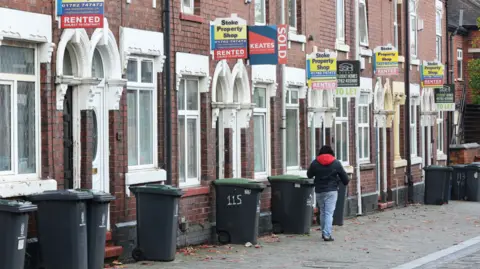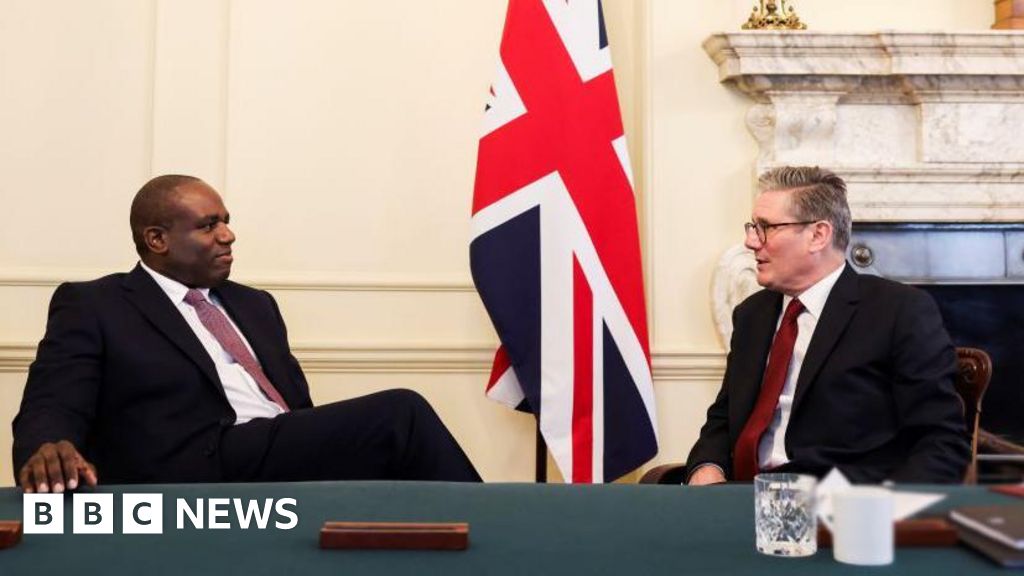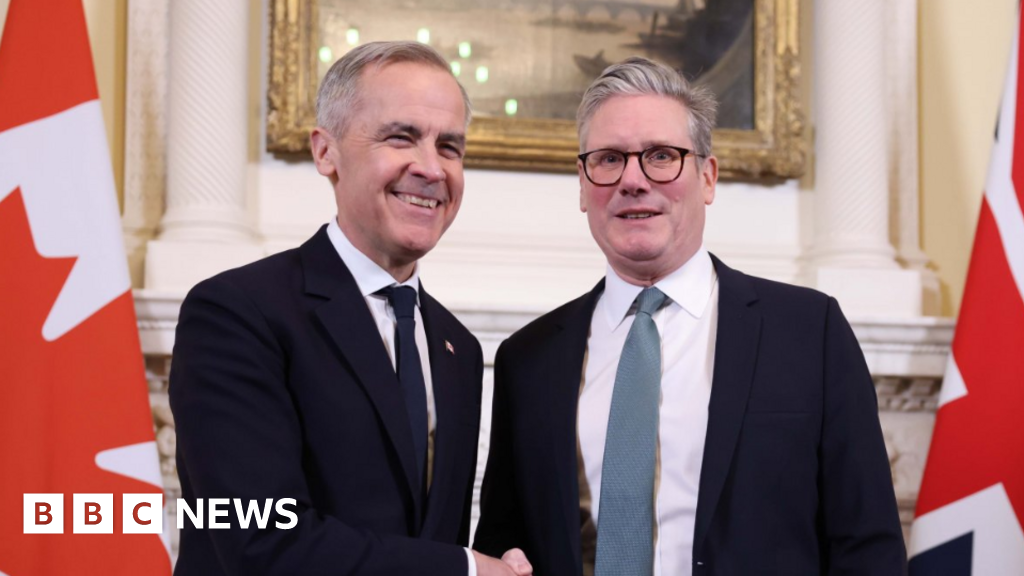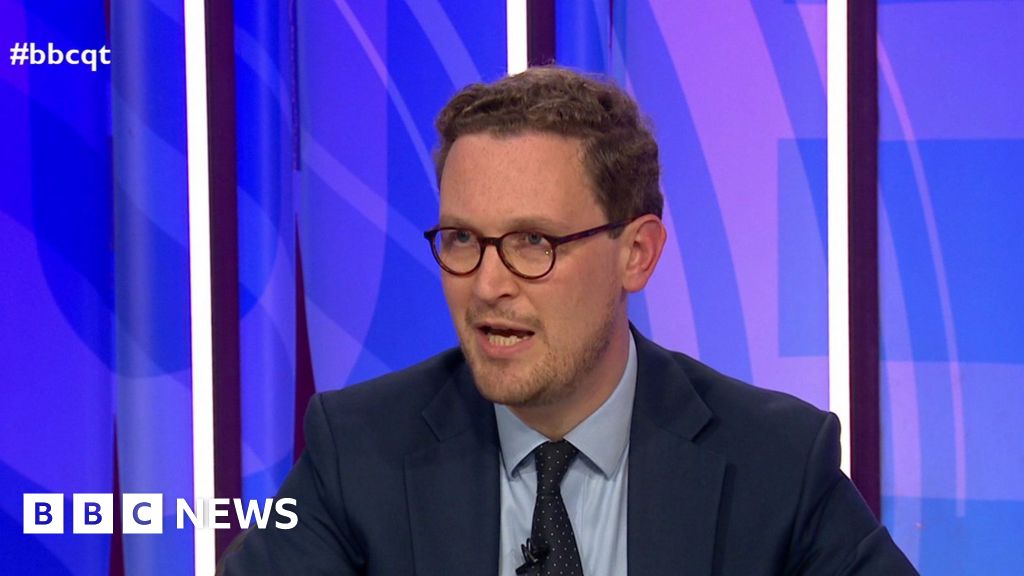ARTICLE AD BOX

 Getty Images
Getty Images
The amount of housing benefit that private renters can claim will be frozen again next year, the government has confirmed.
It means payments will not keep track of rent rises, sparking warnings that claimants whose rent goes up would see shortfalls.
Housing benefit has not automatically reflected rent rises since 2013, with the Conservatives freezing it for seven for the last 12 years.
Charity Shelter said rising rents, combined with a shortage of social housing, was putting families at risk of homelessness.
The Joseph Rowntree Foundation (JRF), an anti-poverty charity, said the move meant the cap would drift "further out of step" with the cost of renting.
The government said it was committed to a "fair and sustainable" welfare system, and was committed to the "biggest increase in affordable housing in a generation".
Housing benefit is paid to low-income households to cover all or part of their rent, either as a standalone payment or as part of Universal Credit.
Local Housing Allowance (LHA) determines the maximum amount that can be claimed by people renting from a private landlord, and is set by local rent officers in around 200 areas across the UK.
Payments are fixed by property size, up to a maximum of four bedrooms, and are subject to a nationwide cap that limits claims in several parts of London.
They also count towards the overall benefits cap, first introduced in 2013, which is also being frozen next year.
Charities have complained that a four-year freeze to LHA rates between 2020 and 2024 left claimants unable to cover rising rent costs, with Citizens Advice estimating two-thirds experienced a shortfall as a result.
Housing benefit rates used to be automatically linked to the cost of rents in different areas, but this ended under the Tory-Lib Dem coalition in 2012.
Under the Conservatives, rates have been frozen in seven years since then, including the latest freeze period between 2020 and 2024.
The Conservatives increased rates for this year, however, by fixing rates so they cover the cheapest 30% of properties in any given area.
'Let down'
The government has estimated that around 1.6m households will benefit from that uprating this year, to the tune of £785 a year on average.
But campaign groups expressed disappointment that LHA rates will again be frozen next year, after the government confirmed the move alongside the Budget.
The JRF, which has been campaigning for the cap to be permanently relinked to local rents, has estimated that a freeze next year will leave private renters who get housing benefits £243 per year worse off on average.
Chief Executive Paul Kissack said renters would feel "let down" by the move, adding that rent prices had "soared in recent years".
The NRLA, a which represents landlords, also complained that next year's freeze would mean support for housing costs would bear "no resemblance to rents".
A government spokesperson said that this year's uprating meant LHA rates had gone up by 6.7%, and pointed to extra money confirmed at Wednesday's Budget for councils to help low-income households with other costs, such as food and energy.
They added that councils can make Discretionary Housing Payments to support households struggling with housing costs.
Affordable housing spend
The housing benefits bill has ballooned in recent decades and now costs the Treasury over £30bn a year, predicted to rise to £35bn by 2028.
The Chartered Institute for Housing has pointed out the increasing bill means only 12% of government spending on housing in 2022 went towards new buildings, compared to 95% in 1976.
Polly Neate, chief executive of homelessness charity Shelter, said a lack of social housing meant that "as rents continue to skyrocket", the freeze on housing benefits meant low-income families in the private sector were at risk of losing their homes.
"The government must unfreeze local housing allowance so that families can afford to keep their homes," she added.
On Wednesday the chancellor confirmed an extra £500m for the current affordable housing budget, which runs until 2026.
The government is also consulting on a deal that will allow social housing providers to put up rents above inflation for between five and ten years, in a bid to encourage them to invest in new stock.

 7 months ago
26
7 months ago
26








 English (US) ·
English (US) ·